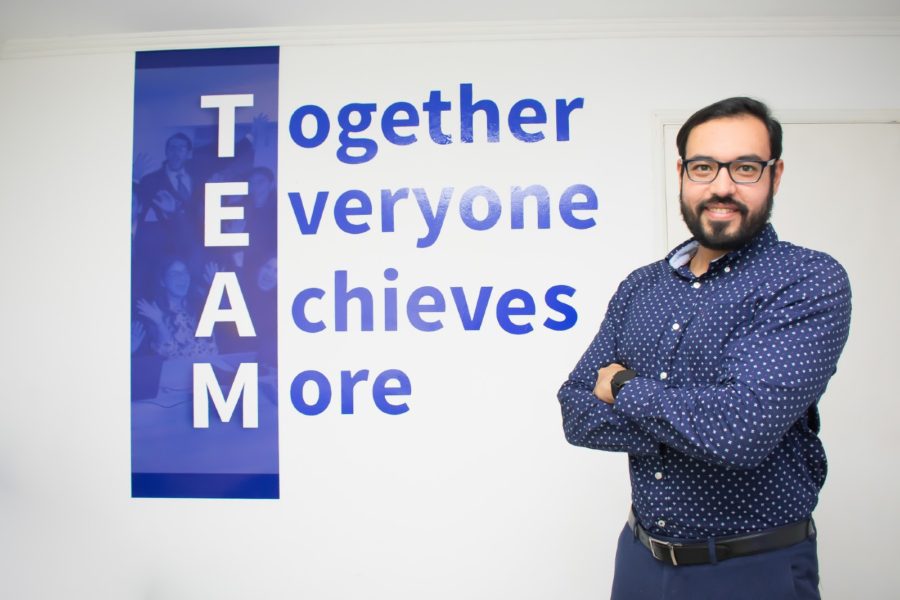Altruism is a topic we’ve been discussing here at Freelance Latin America. Another addition to our list of monthly values we like to highlight. We even covered the subject in a workshop at the office, as you can see on our Instagram post below.
I wanted to delve deeper. What is altruism? Why do we talk about it? Can it function alongside professionalism or are they separate ideas that we’re trying to intermingle in our efforts to better ourselves?
Professionalism Deconstructed
One of those words we often use, yet we don’t know what they mean. What is professionalism anyway? As a habit, I turn to etymology to help me understand words better, and the power behind them. What they meant then, and what they might now.
Origins are important to understand the current situation or nature of something, just as analyzing the past helps us prepare for a better future.
Imagine my surprise when I found out that the root word for Profession, is the Latin Professio. Linked in roots with the verb to Profess, it essentially meant the act of swearing an oath, a declaration of commitment. This makes sense if we go back to how professionals were formed hundreds of years ago: Each profession was an undertaking that began in childhood.
Many professions included oaths that bound you to a set of values and guidelines, many of which we still see standing today; think about the Hippocratic Oath or Military Pledges.
What Does Having A Profession Mean?
But as it tends to happen with the natural evolution of… anything really, words change in meaning. Having a profession or being a professional does not mean you swore an oath to anything anymore, or at least not commonly. But perhaps this is a concept not everyone shares, and that we may yet refute.
Take a look at what I found in Hickson & Thomas’ journal article by name of Professionalization in Britain: A Preliminary Measurement. Therein an idea by Barber (1963) caught my attention: A professional must have a primary orientation to the community interest rather than to individual self-interest.
Let’s add more wood to the fire and quote Friedson (2001): There can be no ethical justification for professionals who place personal gain above the obligation to do good work for all who need it, even at the expense of some potential income.
Indeed, there is a place for more than self-interest and profit. If we defy our idea of a professional, as not someone who simply is effective at their job, and successful when measured monetarily, but as someone duty bound to create good wherever possible, with a set of skills developed by study and apprenticeship, and armed with ethics that drive them towards a humanitarian, communal goal, then perhaps we now have a place for Altruism.
So, What Is Altruism?
Typically, we define Altruism as a behavior characterized when it is motivated by a desire to benefit someone other than oneself for that person’s sake. However, the more we look into it, the more we can understand.
Altruism can be Strong or Weak; let’s explore that: Strong Altruism is acts undertaken despite the perception that it involves some loss of one’s well-being.
These actions are often linked to the deontological thinking of what’s right for good’s sake. If our definition of Good is clear, and doing good might mean some loss or detriment to ourselves, but we do so anyway, then said action is Strongly Altruistic.
Then Weak Altruism is what happens when an action is motivated, at least in part, by the fact that it benefits someone else or the fact that it will not injure anyone else.
Differences Between Weak Altruism and Strong Altruism
To clarify, even though these two characteristics are defined as Strong and Weak, this does not mean by any stretch that one is above the other or vice-versa. There is no better Altruism, as being altruistic is already inherently a virtue. We’re only deconstructing their meaning so we can understand where altruism truly applies.
To do that, let’s theorize in examples: An easy idea of strong altruism is a Donation. When a person donates funds or resources, even time or effort to a cause they deem worthy, they are being Strongly Altruistic—the resources or efforts they’re donating, without any expectation of a benefit to themselves, could’ve been used for their profit.
Since these actions are purely for the benefit of someone else, and do theoretically symbolize a loss (Objective if it’s a donation, and in the form of Loss-of-Opportunity, if it’s volunteering) for the giver, this person is Altruistic in the Strong sense.
Now consider a person who invests money in a third world-based company say a family-owned enterprise from Afghanistan or Bangladesh. They could’ve invested in anything anywhere else that would’ve meant a more profitable return, but this person thought they could be helpful by investing money into the productive means of those in need.
Even when this person does ultimately expect a return on their investment, this action is Weakly Altruistic, as part of the motivation is helping others. I’ll take the opportunity here to plug Kiva as a way to achieve this if you’re interested.
Linked Ideas
The fact of the matter is that there is indeed a space for Altruism inside Professionalism. By helping others we can benefit ourselves, and that is good too. Altruism is not just self-sacrifice, it’s the will to help others grow, and if we can grow alongside them, then even better.
If you want to take a deep dive into the philosophical connotations and constructs of Altruism, I highly recommend this article. It helped me flesh out my ideas and changed my mind about our virtue of choice for this topic.
See more articles by Paola Rodriguez






